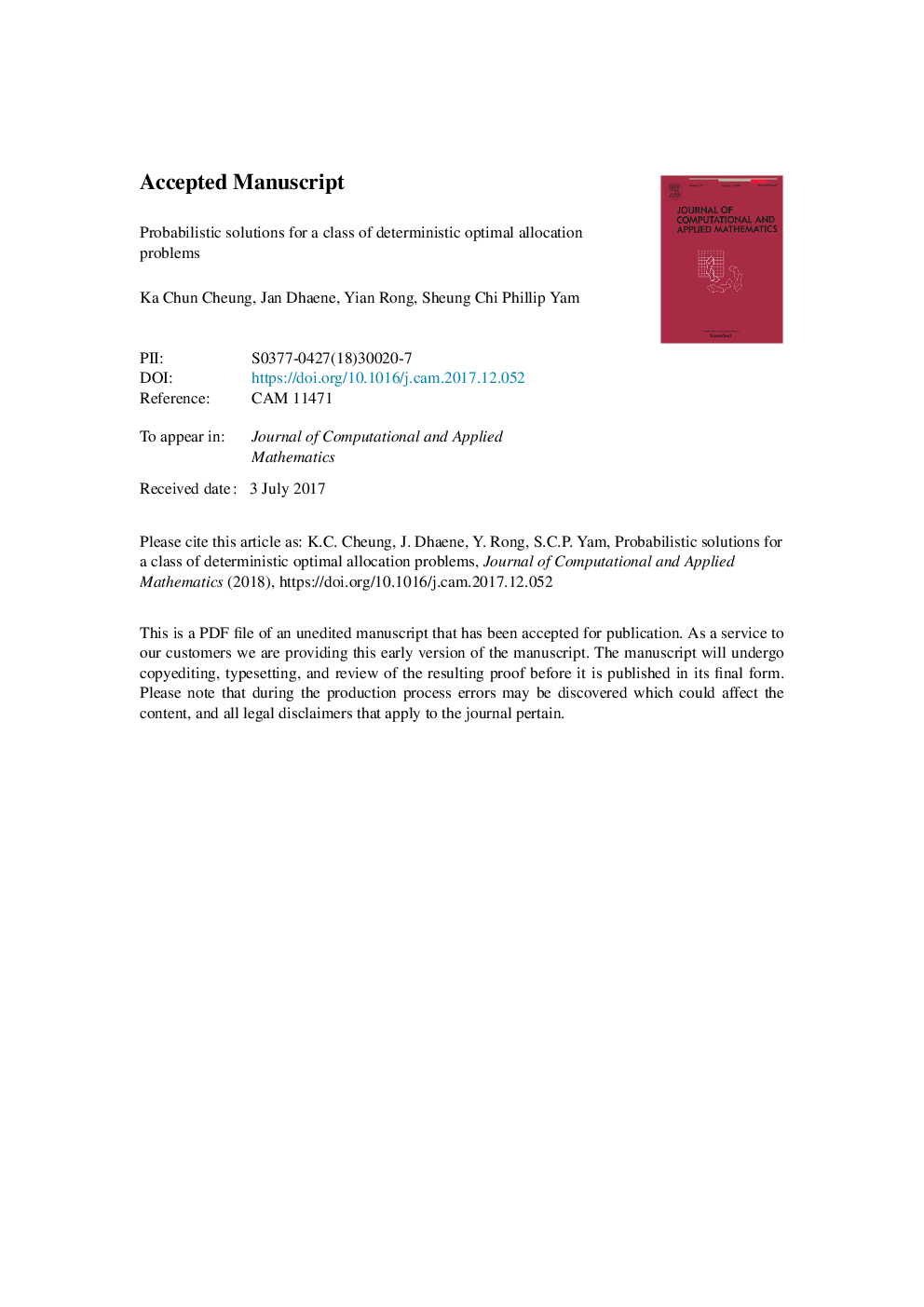| Article ID | Journal | Published Year | Pages | File Type |
|---|---|---|---|---|
| 8902121 | Journal of Computational and Applied Mathematics | 2018 | 22 Pages |
Abstract
We revisit the general problem of minimizing a separable convex function with both a budget constraint and a set of box constraints. This optimization problem arises naturally in many resource allocation problems in engineering, economics, finance and insurance. Existing literature tackles this problem by using the traditional Kuhn-Tucker theory, which leads to either iterative schemes or yields explicit solutions only under some special classes of convex functions owe to the presence of box constraints. This paper presents a novel approach of solving this constrained minimization problem by using the theory of comonotonicity. The key step is to apply an integral representation result to express each convex function as the stop-loss transform of some suitable random variable. By using this approach, we can derive and characterize not only the explicit solution, but also obtain its geometric meaning and some other qualitative properties.
Related Topics
Physical Sciences and Engineering
Mathematics
Applied Mathematics
Authors
Ka Chun Cheung, Jan Dhaene, Yian Rong, Sheung Chi Phillip Yam,
